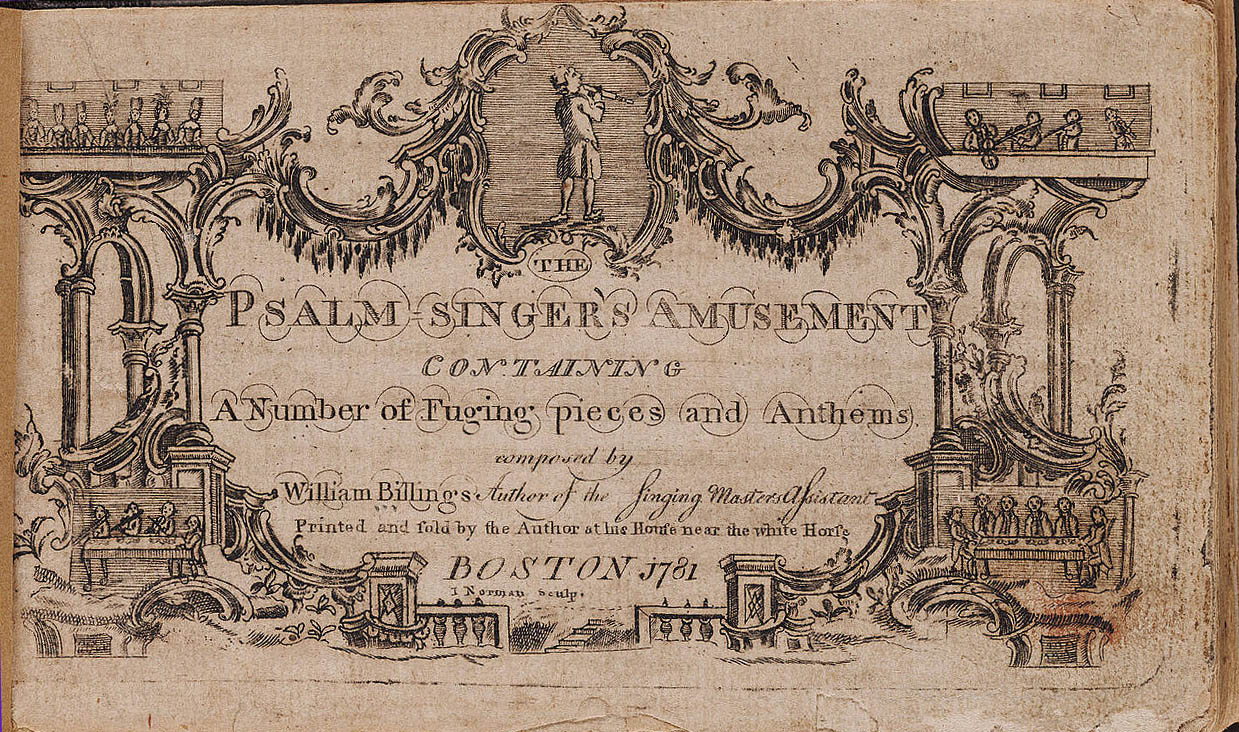Chester
William Billings, 1778 |

 |
What is the message of this song? Restate in your own words the meaning of each verse. |
 |
What metaphors does Billings use in the first verse? What do the metaphors stand for? Who are the "tyrants" in the first line and what is the "iron rod" they were shaking? |
 |
What are "slavery" and "chains" symbols for? Do you think Billings meant the African slave trade? Why or why not? What other songs and writing from this era use slavery terms to refer to the colonists' situation? |
 |
Who were the people named in verse two? What would you say is the mood of this song? How does the war seem to be going? What was happening in the war in 1778? What was probably the reason for Billings' cheering in this song? |
 |
How might the song's mood be different if it were written in the previous year during the siege of Philadelphia before Valley Forge? |
|

"Chester" performed by Boston Camerata on Free America, Harmonium Mundi, © 2019. Available via Spotify.
While the fife and drum bring to mind a military performance, the choral setting in this recording suggests a religious venue. Even the structure of the music is hymn-like, but in this case it is a revolutionary hymn.
An alternative recording is available performed by Paul Hillier, Theatre of Voices & His Majesties Clerkes on Home to Thanksgiving - Songs of Thanks and Praise, Harmonia Mundi, © 1999. Available on iTunes and on Spotify.
|

View the lyrics for "Chester."
View the published score.
|
|

Billings, a tanner from Boston, was also a singing master, composer and a devout supporter of liberty for the Colonies. His second collection of music, The Singing Master's Assistant, included a tune he had published earlier but to which he fit revolutionary words combining patriotic and religious fervor. The song quickly became one of the most popular "hits" of the day. Both musical and literary style—emphatic and dynamic rather than graceful or refined—reflect Billings’s imaginative, even eccentric, approach to composition.
After "Yankee Doodle," "Chester" was probably the most popular song among the American troops during the Revolution. This is fitting, as it was the first completely American patriotic song—written and composed by a "home-grown" musician. As the first patriotic song with a tune written by a white American, it marks white America’s musical independence.

Billings, William. The Psalm-Singer's Amusement Containing a Number of Fuging Pieces and Anthems. Printed and sold by the author ..., Boston, monographic, 1781. Notated Music. Retrieved from the Library of Congress, <www.loc.gov/item/2008581402/>. |

Howe, Burgoyne, Clinton, Prescott, and Cornwallis: British officers.
|

Rewrite the words so the song is encouraging the more discouraged Americans of 1777 instead of celebrating the victories of 1778. |
|


